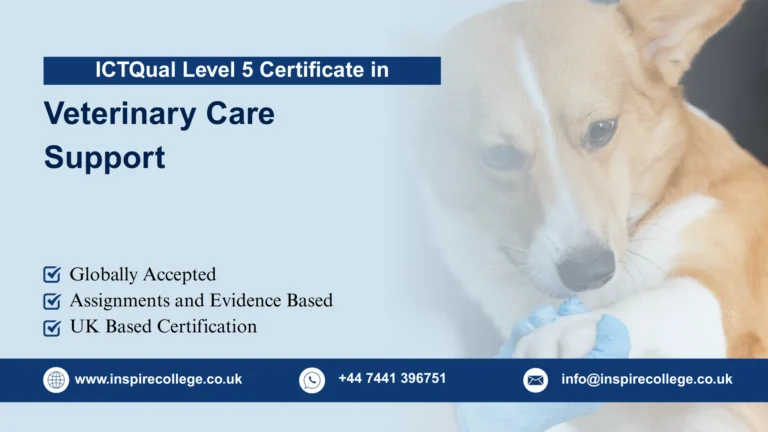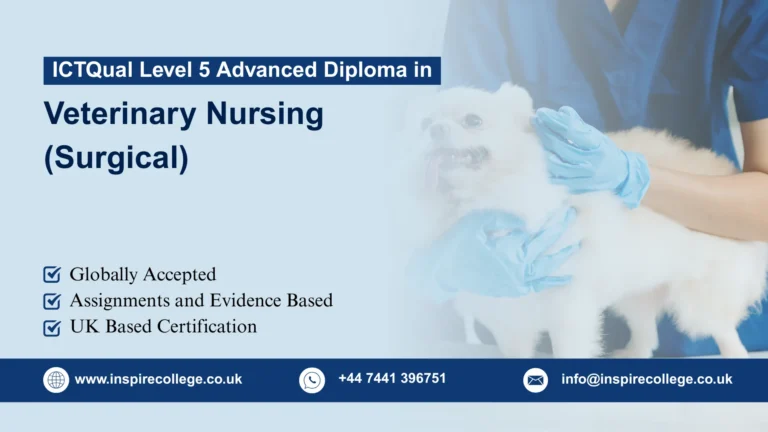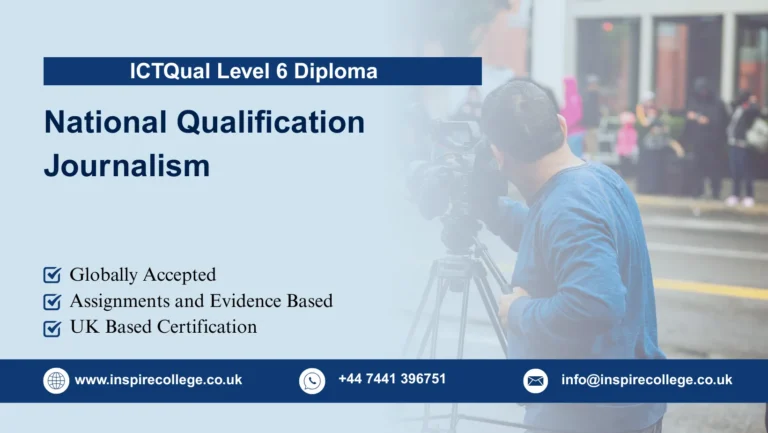
ICTQual Level 3 Diploma in Practical International Journalism
The ICTQual Level 3 Diploma in Practical International Journalism is a foundational qualification designed for learners looking to start a professional career in the dynamic and rapidly evolving field of journalism and media communication. This programme introduces learners to the core principles, practices, and ethics of modern journalism, providing hands-on experience and a comprehensive understanding of global media operations.
This internationally recognised diploma focuses on essential practical skills for aspiring journalists, including news writing, interviewing, editing, multimedia reporting, and digital storytelling. Learners gain real-world experience in gathering, verifying, and presenting news across print, broadcast, and digital platforms, while developing a strong understanding of journalistic ethics, accuracy, and objectivity.
The programme blends theoretical learning with practical assignments, enabling learners to produce credible and engaging content suitable for diverse media formats. Continuous guidance and assessment help learners enhance their creativity, critical thinking, and communication skills, all of which are vital for success in today’s fast-paced, digital-first media landscape.
Upon completion, learners are prepared to pursue entry-level roles in news agencies, online publications, public relations, or broadcast media. They can also progress to higher-level journalism and communication qualifications to further advance their careers.
The ICTQual Level 3 Diploma in Practical International Journalism provides an ideal starting point for those seeking to master the art of storytelling, gain an international perspective on media, and build a confident foundation in professional reporting and communication.
To ensure learners can fully benefit from the programme, the following entry requirements apply:
- Age Requirement:
Learners should be 18 years or older at the time of enrolment. - Educational Background:
Applicants should have completed secondary education (or equivalent) with a basic understanding of English and communication skills. Learners with prior experience or interest in journalism, media, or communication are encouraged to apply. - Work Experience:
No formal work experience is required for this Level 3 programme. However, any previous exposure to writing, content creation, or media-related activities can be an advantage. - English Language Proficiency:
As the course is delivered in English, learners must have good English language skills, demonstrated through:
- Completion of secondary education in English, or
- Evidence of prior study or work experience in an English-speaking environment.
These entry requirements ensure that learners are well-prepared to engage with foundational journalism concepts, practical assignments, and media ethics, making the programme suitable for school leavers, career changers, and aspiring journalists seeking to start their professional journey.
Mandatory Units
This qualification, the ICTQual Level 3 Diploma in Practical International Journalism, consists of 6 mandatory units.
- Fundamentals of Journalism and Media Principles
- News Writing, Reporting, and Editing Skills
- Interviewing Techniques and Feature Production
- Media Ethics, Law, and Professional Standards
- Digital Journalism and Multimedia Applications
- International Current Affairs and Global Media Awareness
Learning Outcomes for the ICTQual Level 3 Diploma in Practical International Journalism:
Fundamentals of Journalism and Media Principles
- Understand the core principles, history, and role of journalism in society
- Identify different types of media and their functions in local and global contexts
- Recognise the importance of accuracy, fairness, and objectivity in reporting
- Explain the structure and operation of news organisations and media outlets
- Analyse audience needs and the impact of media on public opinion
- Develop foundational research and information-gathering skills
- Demonstrate awareness of current trends and innovations in journalism
- Apply critical thinking to assess the credibility of news sources
News Writing, Reporting, and Editing Skills
- Produce clear, accurate, and engaging news articles for various platforms
- Apply effective reporting techniques including fact-checking and sourcing
- Structure news stories according to international journalism standards
- Develop concise and compelling headlines and leads
- Edit and proofread content to ensure clarity, accuracy, and coherence
- Adapt writing style to different media formats, including print, online, and broadcast
- Understand the role of timeliness and deadlines in news production
- Incorporate visual elements to support and enhance written content
Interviewing Techniques and Feature Production
- Plan, conduct, and record effective interviews for journalistic purposes
- Develop questioning techniques that elicit detailed and accurate responses
- Apply storytelling techniques to produce feature articles and reports
- Integrate quotes, background information, and context effectively
- Manage sensitive information and maintain ethical interview practices
- Adapt interview and feature content for different media platforms
- Use research and preparation to support feature development
- Analyse audience engagement and tailor content to reader interest
Media Ethics, Law, and Professional Standards
- Understand key legal frameworks relevant to journalism, including defamation, privacy, and copyright
- Apply ethical principles such as impartiality, fairness, and accountability
- Recognise the responsibilities of journalists in reporting sensitive or controversial topics
- Analyse case studies of ethical dilemmas in media practice
- Develop professional standards for accuracy, integrity, and transparency
- Apply organisational policies and codes of conduct to reporting activities
- Understand the balance between freedom of expression and public interest
- Evaluate the impact of media decisions on audiences and society
Digital Journalism and Multimedia Applications
- Create engaging content using digital tools for online and social media platforms
- Apply basic multimedia production techniques including audio, video, and graphics
- Adapt content for mobile and web audiences to enhance accessibility
- Understand the principles of SEO and audience engagement in digital media
- Analyse digital metrics to evaluate the impact of multimedia content
- Integrate visual storytelling techniques with written journalism
- Use emerging digital technologies to enhance reporting and content creation
- Develop strategies for cross-platform publishing and content dissemination
International Current Affairs and Global Media Awareness
- Analyse major international news events and trends in a global context
- Understand cultural, political, and economic factors affecting global journalism
- Evaluate international media coverage and its influence on public opinion
- Develop awareness of global issues, crises, and social developments
- Compare reporting standards and practices across different countries
- Apply critical thinking to assess the reliability of international sources
- Recognise the role of media in diplomacy, advocacy, and social change
- Communicate global news effectively to diverse audiences
The ICTQual Level 3 Diploma in Practical International Journalism is designed for learners who want to start their careers in journalism and media, building a strong foundation in professional reporting and communication. It is ideal for individuals who are passionate about storytelling, media, and current affairs, and who wish to develop practical skills for a fast-paced media environment.
This course is particularly suitable for:
- Aspiring Journalists – Learners who want to gain the essential skills needed to start a career in print, broadcast, or digital media, including news writing, interviewing, and multimedia reporting.
- School Leavers and College Graduates – Individuals seeking an entry-level qualification that opens doors to professional journalism roles or provides a pathway to higher-level media and communication studies.
- Content Creators and Bloggers – Those looking to enhance their writing, digital storytelling, and research skills, producing credible and engaging content for online platforms.
- Freelance Writers and Media Enthusiasts – Individuals who want to understand journalistic standards, media ethics, and reporting practices to improve their independent work or portfolio.
- Career Changers – Professionals from other fields who wish to transition into journalism or media roles and require a solid foundational qualification to gain credibility.
Overall, this programme is designed for motivated, curious, and creative learners who want to develop practical journalism skills, understand international media practices, and build a confident foundation for a career in professional reporting and media communication.
Register Now
FAQs for ICTQual Level 3 Diploma in Practical International Journalism






